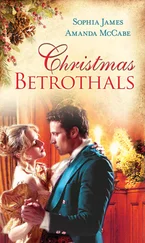“Christopher named it after his horse,” Lady Havorford explained.
I stood, the small horse cradled in my hands. “Lancaster belongs to Kit?”
“He’s had it since he was a boy,” said Lady Havorford. “A neighbor woman made it for him. Yet another sympathetic soul. She lived in a cottage at the end of our bridle path.”
I felt my knees wobble slightly as I looked down at the well-loved little horse. “What was the neighbor woman’s name?”
“Westwood,” said Lady Havorford. “Miss Dimity Westwood.”
20
A bell tolled in the furthest recesses of my mind, and I was instantly transported to my living room, where the Pym sisters sat, describing their fleeting encounter with Kit Smith.
It was rather eerie, to be honest. He reminded us so strongly…
… of poor Robert Anscombe, who died so long ago….
“Y-your maiden name, Lady Havorford,” I managed, returning shakily to the present moment. “Was it, by any chance, Anscombe?”
“Originally, yes,” she replied. “It later became Anscombe-Smith. My stepmother insisted on joining her name to ours when she married Papa.”
I looked at Julian and gave a short, incredulous laugh. “Christopher Anscombe-Smith,” I said. “Kit Smith. Smitty.” When he didn’t respond, I took a step toward him. “Kit grew up at Anscombe Manor, Julian. That’s how he knew about the bridle path. He grew up next door to Dimity.”
Lady Havorford favored me with a polite, incurious stare.
“I don’t pretend to know what you’re talking about”—she held up her hand for silence—“nor do I care. I have told you the truth about my brother. It is a matter of indifference to me whether you believe it or not. I must now attend to my guests. If you’ll excuse me…”
“Lady Havorford,” Julian said urgently, “you must have loved your brother once. If you search your heart, you’ll find your love for him still lives, in spite of everything. Won’t you please give me a message to bring to him? You may not have another chance.”
Lady Havorford floated to her feet and gazed down at Julian imperiously. “You may bring a message to my brother, Father Bright. You may tell him that he will never redeem himself in my eyes, and that I hope he rots in hell.”
Lady Havorford smoothed her dress and glided toward the hallway, her beautiful head erect, her satin gown rippling luxuriously as she moved. When the double doors had closed behind her, I saw that Julian had crossed to the mahogany desk.
“Julian,” I said, “Budge’ll be here in a minute, to kick us out.”
“I doubt it.” He untied the black ribbon and took up the manuscript. “Lady Havorford wouldn’t have left us alone with her father’s memoir unless she wanted us to see it.” He scanned the topmost sheet, set it aside, and began leafing through the rest of the pages. Suddenly he clutched the sheaf of papers to his chest and looked up at the gilded balcony, his face etched in pain.
“Julian?” I said, hastening to his side. “What is it? What’s wrong?”
He pointed to the page he’d set aside. “Read the epigraph Sir Miles chose.”
The short quotation was written in a crabbed hand on an unlined and unnumbered sheet of paper:
As soon as men decide that all means are permitted to fight an evil, then their good becomes indistinguishable from the evil that they set out to destroy.
—Christopher Dawson,
The Judgment of Nations (1942)
I looked up at Julian. “It sounds like something Kit might have said to him.”
“I hope to God it wasn’t,” Julian said heavily. “Here, look at the next page.”
He handed me a photocopy of a photograph. It was an abstract black-and-white composition, blurred splashes and pinpoints of light against a grainy gray background. The caption, written below the photograph in the same crabbed hand as in the epigraph, identified it as The first RAF raid on Hamburg, 24 July 1943. Photoflash of city center.
“It’s the firestorm in Hamburg,” Julian explained, “as seen from the belly of a bomber. There were pictures like it in the book I borrowed from you. The dots are incendiary bombs. The blurs are where fires are already raging.” He placed the rest of the manuscript on the desk. “Turn to the next page and go on turning.”
There was no narrative text in Sir Miles’ memoir. Instead, each page contained a single photograph, photocopied, no doubt, during the long days he’d spent at the Imperial War Museum.
Some of the photographs were like the first, taken from bombers as they flew over a burning city, but most depicted more readily recognizable scenes: charred bodies, sobbing women, smoking ruins. The captions below the ruins conjured their own haunting visions: Maternity Hospital, Berlin; Holy Ghost Church, Munich; Refugee Center, Dresden, and on and on, for more than five hundred pages. I flipped from image to image and finally turned away, unwilling to look further.
“It’s not a memoir,” I said. “It’s a nightmare.”
“It’s a self-portrait,” said Julian, “meant to explain himself to his son.”
“What kind of man would leave something like that to his son?” I asked. “It’s hellish.”
“Imagine how much more hellish it would be to carry those pictures around in your head,” said Julian, “to see them in your dreams and in every waking moment of your life—and know you’d had a part in creating them.” He walked aimlessly to the middle of the room, pressing his fingers to his temples, as though to drive the obscene images from his mind.
I tapped the pages of the manuscript together, retied the ribbon, and placed them on the blotter, where Lady Havorford had left them. “Do you think Sir Miles was a monster?”
“He was a man of conscience, asked to do unconscionable things.” Julian’s hands dropped to his sides as he looked toward the gilded table. “His medals must have stabbed at him like a crown of thorns. While his children bragged about his bravery, he brooded over the children he’d destroyed. I’ve seen it before,” he went on, “in the old soldiers who end up at Saint Benedict’s after years of trying to erase their memories with drugs or drink.”
I thought of the two vagrants, Rupert’s mates, who’d saluted me in Preacher’s Lane. “What do you do for them?”
“I feed them, listen to them, remind them that God loves them. Sometimes they believe me. Sometimes…”
He shrugged helplessly. “I can’t condone suicide, but I also can’t help wondering how a decent man could live with himself after leading the raid on Dresden.” His head snapped up and he glared at the balcony, his eyes glazed with angry tears. “But where could Sir Miles look for help? He was a hero. How can a hero admit to doubt and self-disgust? How can a man who’d done what he’d done believe in the promise of salvation?”
Julian swiped a hand across his eyes, then strode to the gilded table, where he bent to collect Sir Miles’ medals and return them to the water-stained suede pouch. I tucked Lancaster into the canvas carryall and stood before the fire, trying to think of something comforting to say.
“I don’t believe that Kit drove his father to suicide,” I said finally. “I think Sir Miles was on his way there long before Kit confronted him. It’s like you said—Sir Miles carried those pictures around in his head. His memories killed him, not Kit.”
“What we believe is immaterial,” said Julian. “It’s what Kit believes that matters. Kit believes himself responsible for his father’s madness and death. Sir Miles left his son a legacy of despair.” He thrust the suede pouch into the carryall and zipped it shut, as if he never wanted to see the medals again.
Читать дальше








